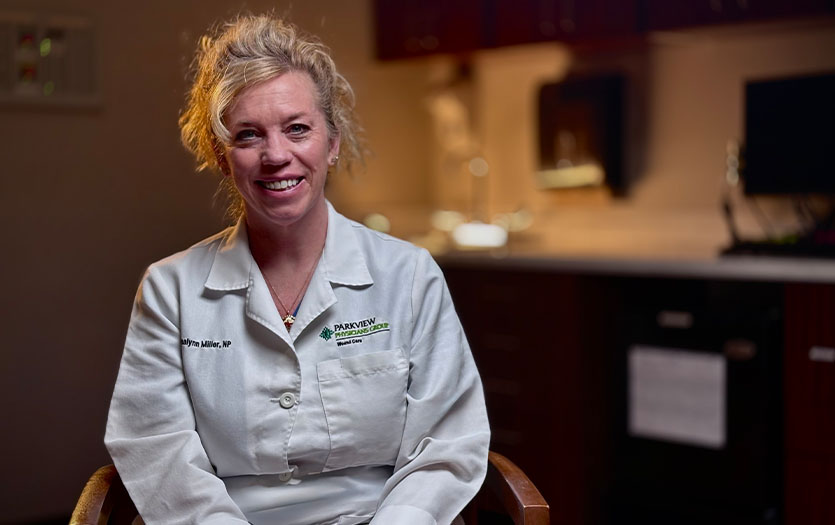
Memory loss can be a frustrating aspect of getting older, but how do you know when it’s something more? Michele Helfgott, MD, PPG – Integrative Medicine, discusses the differences between aging naturally and Alzheimer’s disease, plus possible causes and precautionary measures you can take to reduce your risk.
Have you ever gone into a room to get something and forgotten why you went in there? Are you constantly forgetting where you put your cell phone? Do you find yourself searching for your glasses, then realize they’re on top of your head? These lapses in memory are not indicative of Alzheimer’s. They are normal occurrences that are a part of the natural aging process and can become more frequent with age.
Dementia, however, is not a natural part of the aging process. It’s a form of cognitive decline so severe that it interferes with daily life. Symptoms can include the following:
- Significant memory loss
- Lack of focus
- Impaired judgment and reasoning
- Mood swings
- Disorientation
- Delusions
- Inappropriate behavior
- Personality shifts
- Inability to communicate
Dementia is most commonly seen in people over the age of 65. As you grow older, your risk and likelihood of developing the disease increase. In fact, half of all Americans 85 and older are afflicted. A recent study estimates that almost 6.8 million Americans have dementia with roughly 1.8 million of those people being severely affected.
Alzheimer’s disease is the most common form of dementia and memory loss. It is a progressive condition that worsens over time. The disease affects at least 5.2 million Americans and accounts for 60-80% of all dementia cases.
Alzheimer’s is characterized by a sharp decline in the production of a neurotransmitter called Acetylcholine. Coupled with the presence of protein deposits called beta-amyloid (plaques) and neurofibrillary (tau tangles), a widespread reaction ensues resulting in the demise and dysfunction of neurons causing severe atrophy and shrinkage of brain cells. The damage usually starts in the memory portion of the brain and begins several years before any symptoms are discernable.
Unfortunately, episodic memory, a type of long-term memory, is the first to be affected, followed by the loss of short-term memory and procedural memory. As the disease progresses, nearly all brain functions are affected, and eventually physical processes like swallowing, urine and bowel control become impaired as well.
Causes
The exact cause of Alzheimer’s disease is unknown, but it’s believed that it can be triggered by a combination of genetic, lifestyle and environmental factors that affect the brain over time. Some factors include heavy metal poisoning, environmental pollutants, hormone imbalance, inflammation caused by poor nutrition and stress can all cause memory impairment.
Prevention
Currently, there is no cure for Alzheimer’s disease, and it’s not a preventable condition. Medication can be utilized, but it will only temporarily slow the symptoms. Lifestyle modifications are the best choice and may lower your risk of developing the disease and other dementia-causing disorders.
Keeping your mind in good working condition is a crucial step in lowering your risk. The most important lifestyle modifiers you can begin with are exercise (body and mind), managing your stress, eating healthy food, focusing on good nutrition, avoiding sugar and processed foods as much as possible, and consuming pharmaceutical-grade supplements such as fish oils, B-Complex, CO Q-10, magnesium and zinc for minerals.
It’s also imperative that you continuously use your mind, and in different ways. Many studies have found that lifelong involvement in intellectually and socially stimulating activities may help reduce the risk of Alzheimer’s disease.
A few examples of mental enrichment include:
- Crossword puzzles
- Memory games
- Learning a new language
- Creating artwork
- Doing calculations in your head
A few examples of social enrichment include:
- Joining a book club
- Making regular dates
- Attending a class
Various websites and apps, such as Lumosity, can be beneficial when challenging your brain and core cognitive functions. If you are concerned about your memory, speak with your primary care physician and discuss your options for evaluation and diagnosis.
Helpful Resources
What You Must Know About Memory Loss by Dr. Pamela Wartian Smith



